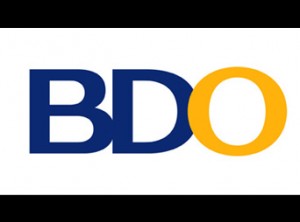BDO reports net profit of P14.3 B

BDO, the banking arm of the family of tycoon Henry Sy, disclosed to the Philippine Stock Exchange on Tuesday that the bank was able to exceed the P12.5 billion earnings projection for the year as both interest and non-interest income expanded. Return on common equity settled at 11.5 percent in 2012.
“Driving the bank’s solid performance last year was the robust expansion in its lending, deposit-taking, and fee-based businesses,” BDO said in the disclosure.
Net interest income went up by 7 percent to P36.2 billion. Volume growth was offset by the impact of regulatory changes and excess system liquidity, the bank said.
In 2012, interest rates fell to record lows following the 100-basis point reduction in the key policy rates of the Bangko Sentral ng Pilipinas which exerted downward pressure on bank margins. The BSP also overhauled the reserve requirement framework in a way that scrapped bank earnings from reserves kept with the central bank.
BDO’s customer loan portfolio grew by 15 percent to P769 billion, while low-cost deposits—the current account and savings accounts — supported the increase in total deposits to P931.6 billion.
Article continues after this advertisementTotal non-interest income rose by 18 percent to P24.6 billion, boosted by trading gains from treasury activities amounting to P8.2 billion.
Article continues after this advertisement“The bank was able to capitalize on market opportunities and realize exceptional gains from its investment portfolio,” the bank said.
The bank earmarked P4.9 billion in provisions against probable loan losses for the year. In terms of asset quality, gross non-performing loan (NPL) ratio stood at 2.8 percent, while provisions now cover 126 percent of NPL as of end-2012.
Capital base stood at P157 billion, the largest in the industry, while capital adequacy ratio (CAR) and tier 1 CAR were at 19.1 percent and 15.2 percent, respectively, much higher than the minimum regulatory requirements.
“With the Philippine economy expected to sustain its growth momentum, BDO looks forward to tapping the promising growth opportunities in its customer segments, capitalizing on its established business franchise and wide distribution network,” the bank said.